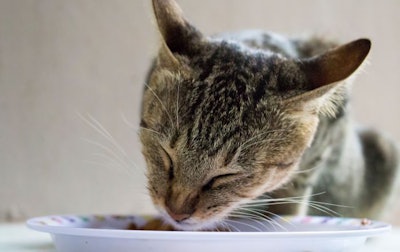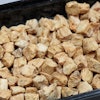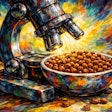
Adapted from a press release:
Growing demand for plant-based pet food is boosting sales of vegan cat food. As per ESOMAR-certified consulting firm Future Market Insights (FMI) the global vegan cat food market is anticipated to surpass US$10,560 million in 2021.
Consumer trends are propelling demand for meat-free pet food alternatives. This trend is encouraging pet food producers to incorporate plant-based formulas such as pea protein in cat food products. FMI projects the vegan cat food market to expand at a positive 7.2% CAGR through 2031.
Prevalence of vegan diets across the globe has translated into increased sales of vegan cat food. Transparent ingredient lists are highly sought-after in human foods and this trend has proven critical in shaping pet owners' preference for high-quality nutrients in pet food as well. Consequently, the focus on product advancements in plant-based kibble, treats and wet food are at all-time high, creating opportunities for sales in vegan cat food.
The overall spike in pet ownership and per capita expenditure on pet food are chief factors providing tailwinds to vegan cat food sales. Unique processing techniques, reusable packaging such as pouches, stand-up bags and product certifications will remain key variables influencing sales of vegan cat food.
As per FMI's regional analysis, the U.S. is expected to dominate the vegan cat food market, reaching US$2,616 million in 2021.
"Growing prevalence of pet humanization, coupled with easy availability of vegan cat food through online channels are expected to propel sales in the global vegan cat food market between 2021 to 2031," said an FMI analyst.
From previous reporting on plant-based pet food
As vegetarian and vegan diets become increasingly mainstream, pet owners want their companion animal’s diets to match their own edibility ethics. Cats require more caution. In nature and the margins of human habitation, cats eat other animals or the pieces thereof. However, cat digestive systems can handle plant-based nutrients, allowing the inclusion of grains, fruits and vegetables in cat kibble and wet food into properly formulated cat foods.
Plants have long been part of pet food, mainly grains like corn, wheat and rice. But as the market has evolved to encompass categories such as grain-free or novel ingredients like superfoods or alternative proteins, plants have become a more significant contributor to pet food formulations.















